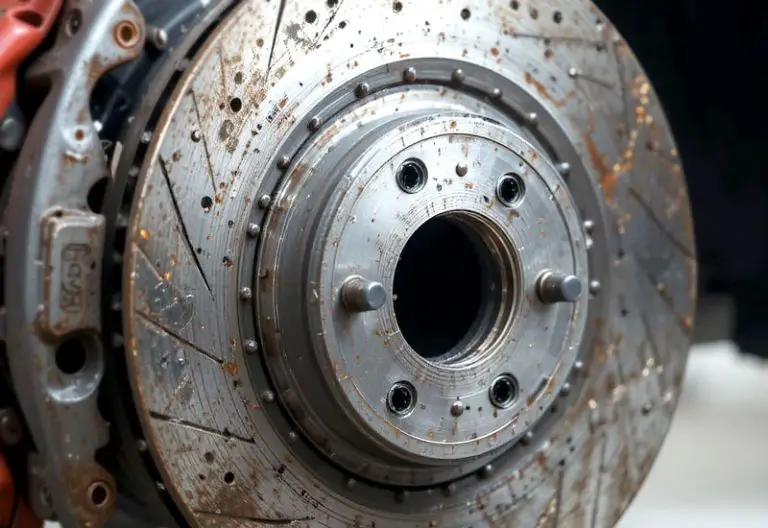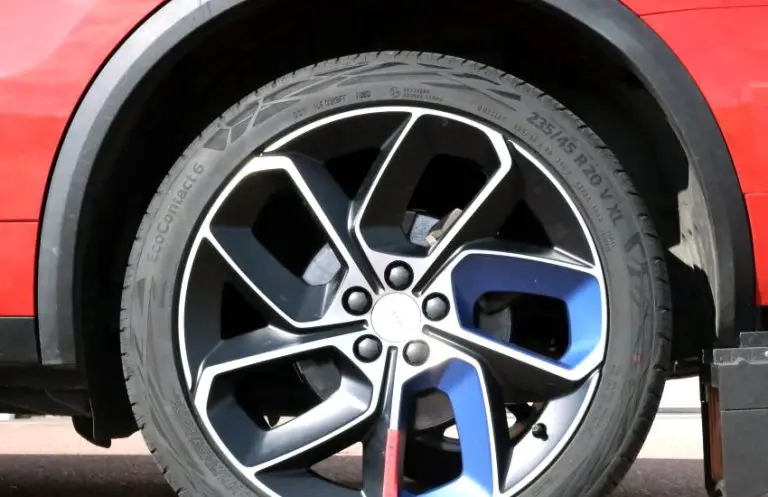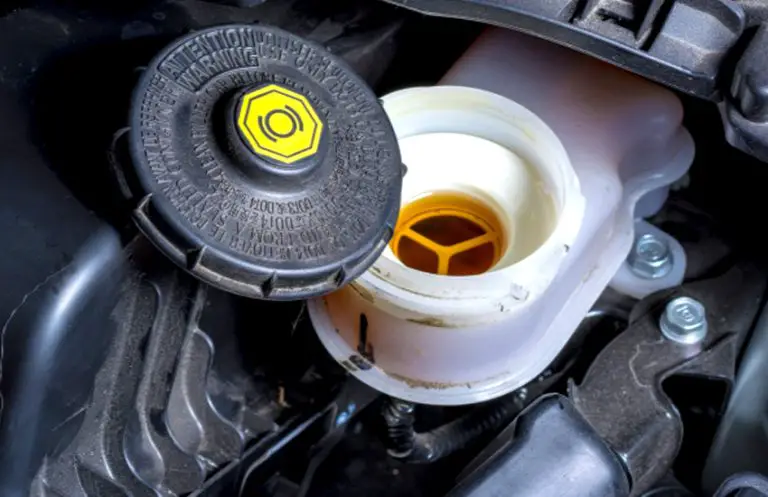Brake drum lifespan varies depending on usage and maintenance, but typically ranges from 150,000 to 300,000 miles. Brake drums play a crucial role in the braking system of vehicles, and understanding their lifespan can help ensure safe driving.
The lifespan of brake drums is dependent on various factors, including driving conditions, maintenance, and the quality of the brake drums themselves. Regular wear and tear due to friction and heat can gradually reduce their effectiveness over time. Proper maintenance, such as regular inspections and prompt replacement when necessary, can help extend their lifespan.
Additionally, heavy usage, frequent braking, and harsh driving conditions can shorten the lifespan of brake drums. Being aware of these factors and taking proactive measures can help maximize the lifespan of brake drums and ensure optimal performance and safety on the road.

Credit: www.iagperformance.com
Factors Affecting Lifespan Of Brake Drums
Brake drums are crucial components of a vehicle’s braking system, responsible for slowing down or stopping the vehicle when the brakes are applied. The lifespan of brake drums can vary depending on several factors, including the material composition, driving habits, and maintenance practices. Understanding these factors can help you prolong the lifespan of your vehicle’s brake drums and ensure optimal performance.
Material Composition
The material composition of brake drums plays a significant role in determining their lifespan. Quality materials such as cast iron or carbon composite are more durable and long-lasting compared to inferior materials. Inferior materials are prone to wear and corrosion, reducing the lifespan of the brake drums.
Driving Habits
Your driving habits can also impact the lifespan of brake drums. Aggressive driving, excessive braking, and heavy loads can lead to increased wear and heat buildup, which accelerates the deterioration of brake drums. Consistent and gentle braking, maintaining safe following distances, and avoiding sudden stops can help prolong the lifespan of brake drums.
Maintenance Practices
Regular maintenance practices are essential for extending the lifespan of brake drums. Inspecting the brakes regularly, checking for signs of wear or damage, and replacing worn components promptly can prevent further damage and ensure optimal performance. Routine maintenance such as cleaning, lubrication, and adjustment can help deterioration and prolong the lifespan of brake drums.
Signs Of Brake Drum Wear
Brake drums are essential components of a vehicle’s braking system, and understanding the signs of wear is crucial for maintaining safety and performance. Here are some common indications that your brake drums may need attention:
Uneven Brake Pad Wear
Uneven brake pad wear can indicate issues with the brake drums, leading to inefficient braking and potential safety hazards. It’s important to inspect your brake pads regularly for any signs of uneven wear.
Squealing Or Grinding Noise
Squealing or grinding noise when applying the brakes could be a sign of worn brake drums. Ignoring these sounds can lead to further damage and compromised braking performance.
Vibrations Or Pulsations
Feeling vibrations or pulsations in the brake pedal or steering wheel can point towards brake drum wear. Addressing these issues promptly is crucial to prevent brake failure.
Tips For Extending Brake Drum Lifespan
Proper maintenance is essential for ensuring the longevity of brake drums. By following a few simple tips, you can extend the lifespan of your brake drums, reducing the need for frequent replacements and saving you both time and money in the long run.
Proper Brake Pad Selection
Choosing the right brake pads is crucial for preserving the lifespan of your brake drums. Opt for brake pads that are specifically designed for your vehicle’s make and model. These pads will provide the correct amount of friction to ensure efficient braking without causing excessive wear and tear on the drums.
Additionally, consider the type of driving you typically engage in. If you frequently tow heavy loads or drive on steep inclines, opt for brake pads with higher heat resistance to prevent overheating and premature brake drum deterioration.
Regular Inspection And Cleaning
Regular inspections and cleanings are vital for identifying any potential issues early on and preventing them from escalating into bigger problems. Make a habit of inspecting your brake drums for signs of damage, such as cracks or excessive wear. If you notice any issues, address them promptly to avoid further damage.
Cleaning the brake drums is also important to remove any debris or dirt buildup that can cause uneven wear on the braking surface. Use a brake cleaner and a soft brush to gently remove any residue. Remember to wear gloves and eye protection when working with brake cleaning agents.
Avoiding Overloading
Overloading your vehicle can put excessive strain on the brake drums, leading to premature wear and reduced lifespan. Ensure that you know your vehicle’s weight limits and avoid exceeding them. If you frequently transport heavy loads, consider distributing the weight evenly across the vehicle to minimize strain on the brakes.
Applying Even Brake Force
Uneven braking can cause uneven wear on the brake drums, reducing their lifespan. When applying the brakes, do so smoothly and evenly. Avoid slamming on the brakes or engaging in aggressive or abrupt braking, as this can cause excess stress on the drums.
It’s also important to use the correct braking technique, such as downshifting and using engine braking when driving downhill, to reduce strain on the brake drums.
By following these tips for extending the lifespan of your brake drums, you can ensure safe and efficient braking performance while minimizing the need for frequent replacements.
Brake Drum Replacement Guidelines
When it comes to ensuring your vehicle’s safety and performance, regular maintenance of your brake drums is essential. Brake drum replacement is a crucial aspect of your vehicle’s maintenance, and understanding when and how to replace them can help prevent potential safety hazards and costly repairs. In this guide, we will delve into the recommended guidelines for brake drum replacement to keep your vehicle in optimal condition.
Mileage And Time Recommendations
1. Mileage: Brake drums typically last anywhere between 50,000 to 70,000 miles. Manufacturers often provide specific mileage recommendations for brake drum replacement based on the model and type of vehicle. Check your vehicle’s manual for the recommended mileage intervals for replacing brake drums.
2. Time: In addition to mileage, the age of brake drums also plays a significant role in their lifespan. It’s recommended to replace brake drums at least every 7-10 years, even if the mileage threshold has not been reached. Over time, brake drums can corrode and deteriorate, impacting their effectiveness and safety.
Visual Inspection Criteria
Regular visual inspections of brake drums are crucial in determining their condition. Here are some visual inspection criteria to consider:
- 1. External Wear: Look for visible signs of wear, such as grooves, cracks, or heat spots on the brake drum’s surface.
- 2. Rust and Corrosion: Check for rust and corrosion, which can compromise the integrity of the brake drum.
- 3. Thickness: Measure the brake drum’s thickness using a caliper to ensure it meets the manufacturer’s specified minimum thickness requirements.
Seeking Professional Help
It’s essential to seek professional help when determining the need for brake drum replacement. A certified mechanic can conduct a thorough inspection and provide expert recommendations based on the condition of your brake drums. Additionally, they can ensure that the replacement process is carried out correctly to maintain optimal braking performance and safety.
Common Mistakes To Avoid
Brake drums are a critical component of a vehicle’s braking system and play a vital role in ensuring safe and effective stopping power. However, the lifespan of brake drums can be significantly compromised if certain mistakes are made in their maintenance and usage. In order to maximize the lifespan of brake drums and ensure optimal performance, it is essential to be aware of and avoid these common mistakes.
Neglecting Regular Inspections
Neglecting to perform regular inspections on brake drums can lead to the accumulation of wear and tear that goes unnoticed. Regular visual inspections, as well as measurements of the drum’s diameter and thickness, are crucial to identify any signs of damage or deterioration. Ignoring these inspections can result in the continued use of worn-out brake drums, putting the vehicle and its occupants at risk.
Ignoring Warning Signs
Ignoring warning signs of brake drum issues, such as squealing or grinding noises, vibrations, or a pulsating brake pedal, can have detrimental effects on the drum’s lifespan. These warning signs often indicate problems such as uneven wear, heat distortion, or brake shoe misalignment. Addressing these warning signs promptly through proper maintenance and repairs can prevent further damage to the brake drums and extend their longevity.
Using Low-quality Brake Components
Using low-quality brake components, including brake drums, can severely impact their lifespan and overall performance. Inferior materials and manufacturing processes can result in premature wear, heat-related damage, and reduced durability. It is crucial to invest in high-quality brake drums and components from reputable manufacturers to ensure longevity and reliability.

Credit: goturbo.net
Benefits Of Brake Drum Longevity
Brake drums are an essential component of a vehicle’s braking system, responsible for providing the necessary friction to bring the vehicle to a stop. The lifespan of brake drums can vary depending on various factors such as the material used and the maintenance practices followed. However, there are several benefits to be gained from having brake drums that last longer, including cost savings, improved safety, and reduced downtime.
Cost Savings
Longer-lasting brake drums can lead to significant cost savings for vehicle owners and fleet operators. By reducing the need for frequent replacements, it eliminates the expenses associated with purchasing new brake drums and the labor costs involved in installation. Additionally, extended lifespan means less frequent downtime, allowing for increased productivity and revenue generation.
Improved Safety
When brake drums have a longer lifespan, it directly contributes to improved safety on the roads. Brake failures can have catastrophic consequences, especially in heavy vehicles or during emergency situations. By investing in high-quality brake drums that are designed to last, drivers can have confidence in their vehicle’s braking performance, ensuring a safer driving experience for themselves, passengers, and other road users.
Reduced Downtime
Downtime can be a significant inconvenience for vehicle owners, leading to delays in operations and potentially causing financial losses. Brake drum longevity ensures reduced downtime by minimizing the need for frequent brake repairs or replacements. Vehicles are able to stay on the road for longer periods, contributing to improved productivity and customer satisfaction.

Credit: www.linkedin.com
Conclusion
The lifespan of brake drums can vary depending on several factors, including driving habits, maintenance, and quality of the part. Regular inspections, timely replacements, and proper care can significantly prolong their lifespan. Remember, a well-functioning braking system is crucial for your safety on the road.
Stay aware of any signs of wear and tear and address them promptly. As with any vehicle component, it’s always best to consult with a professional for guidance and ensure optimal performance and longevity.


